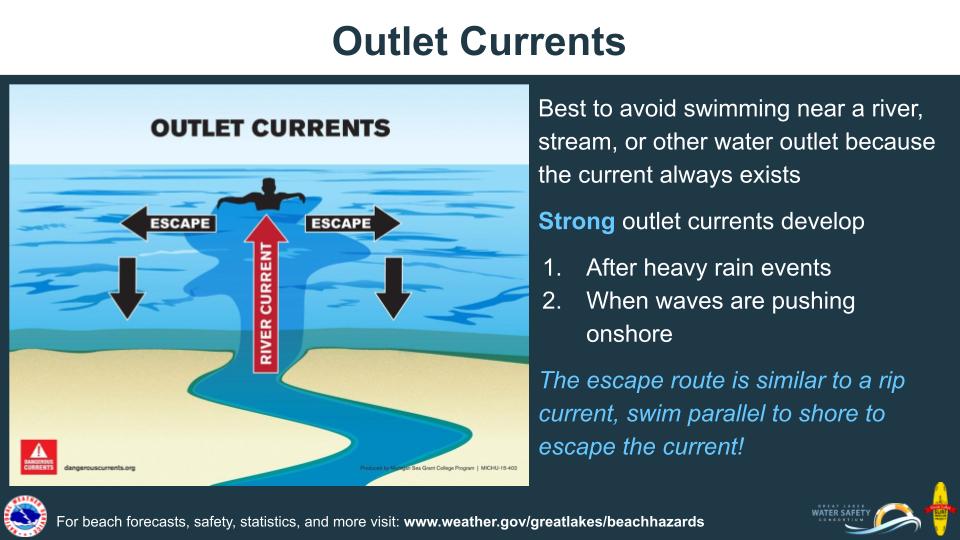Swimming Safely On The Great Lakes
|
Before you enjoy a nice day at the beach, it is important to know before you go! What you should know includes the swim risk, beach status, and expected weather conditions. This page contains resources to help plan a day to the beach on the Great Lakes along with some tips to help stay safe. For forecast information at any Great Lakes beach and additional safety resources check out: |
 |
Forecast
Below is an interactive map showing the beach forecast for Lake Superior Beaches in the Twin Ports. if any Beach Hazard Statements are in effect, the counties impacted will be highlighted. For an hourly forecast go to www.weather.gov/duluth and click your location on the map or type in the city or zip code. For the text beach hazards forecast, click here.
Swim Risk
It is best to know what the different swim risks mean. Knowing the risk can help you prepare for the expected conditions and potentially changing plans to avoid hazardous swimming conditions.
.jpg) |
 |
Waves
Waves drive the swim conditions we experience across the Great Lakes. Check out the images below to understand what causes waves and understanding the wave period and how swimming in the Great Lakes can be different than swimming in the ocean!
 |
 |
 |
.jpg) |
Currents
There are a variety of dangerous currents on the Great Lakes. They include: rip currents, longshore currents, outlet currents, and channel currents.
 |
 |
 |
 |
| For more Information View This Video | |
 |
 |
|
For More Information On Longshore Currents View This Video |
For More Information On Structural Currents View This Video |
 |
 |
| For More Information View This Video | For More Information View This Video |
Water Watcher
It is a best practice to have someone dedicated to watching the water for swimmers. This allows help to be provided faster than just waiting for someone to yell for help. Swimming where lifeguards are present is recommended, but if there are no lifeguards designate someone to be a water watcher. Make sure they are familiar with the signs of drowning and areas to avoid swimming in.
 |
 |
Cold Water
Cold water can KILL! Take a look at the dangers of swimming or falling into cold water.
 |
Heat
We usually enjoy the beach during the heat of summer. It is important to be aware of the signs of Heat Exhaustion and Heat Stroke! Also don't forget the sunscreen.


Video "Play it Safe at Great Lakes Beaches"
 |
Media use of NWS Web News Stories is encouraged! Please acknowledge the NWS as the source of any news information accessed from this site. |
 |